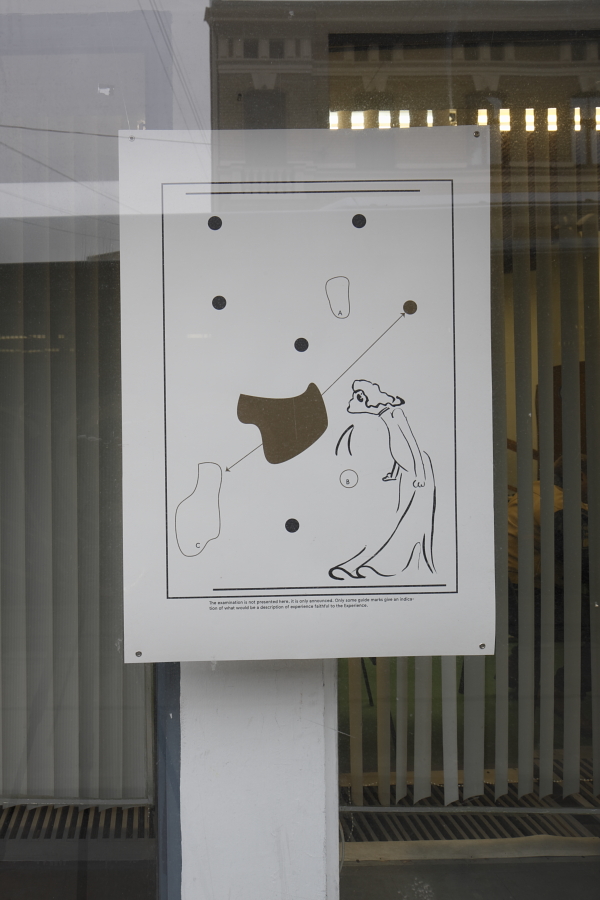
July 4, Friday at 6pm at CAC Reading room
We start with a very simple premise. The main character of the play is the twenty-five-year old Spinoza and his love interest, the thirteen-year-old Maria. Spinoza loves Maria, but Maria‘s sweetheart is one Kerckring, an eighteen-year-old student of van Enden, born in Hamburg. The events take place in Amsterdam (…) Kerckring too feels envy towards Spinoza. And so gives Maria a gift, a pearl necklase. This gift helps him to secure Maria‘s heart. 12 years after Kerckring has finished his studies they get married. Spinoza sees his own helplessness and submits to sadness. (Diaries: Spinoza‘s Poetics, 44-46)
Diaries: Spinoza’s Poetics invites us to read the Ethics as a literary fiction, conceive an ethical rewriting of Charles Bukowski (alcoholism more geometrico), spy on Spinoza’s sadistic insect games, witness the transformation of poetics to politics and back, ponder a theater of plants (asparagus, ivy, and two cacti), copy the miming of the mimosa bush (Ponge and Derrida), follow the author on a not quite successful trip to The Hague, and imagine Spinoza in Cabaret Voltaire.
Neither an academic text nor a smoothly flowing narrative, Diaries: Spinoza’s Poetics is a collection of fragments, stories and observations circling around the question of a Spinozistic aesthetics, and more specifically the possibility of a Spinozistic theatre as a production of affects. This collection of fragmented stories constantly spins itself around the questions of how the Spinozian play would look like? would it be any different from other plays? & what happens when the work of Spinoza is misconceived as a text on art?
On July 4, at CACRR, three speakers: Ainārs Kamoliŋš, Iliana Veinberga and Andrejs Balodis will stand-up the book we celebrate. The concept of pathos will be at the core of Andris Balodis performance. Pathos in this context serves as a word game that includes references to Spinoza’s ethics and affect theory, poetic or creative activity and aesthetic experience of a work of art. Iliana Veinberga will examine interwar discussions in Latvia about industrial design and its relationship to Spinoza’s ethics. While Ainārs Kamoliņš will expand short fragments about the connection of Spinoza’s philosophy to particular artistic and aesthetic issues.
On the occassion of the event Ola Vasiljeva‘s book-inspired posters will be displayed in the CAC Windows from 2nd to 14th July.
Ainārs Kamoliņš (b. 1980) has obtained an MA degree in philosophy from the University of Latvia. Kamoliņš’s main academic interests concern questions raised by early modern philosophers. He has elaborated on these in a number of publications and conference papers in Latvia and abroad (Russia, Finland, Estonia, Germany, Poland). Since 2000 Kamoliņš has worked as a teacher and lecturer in a number of local colleges and universities. In 2008 he participated in a biotech-art workshop organized by Symbiotica in Stavanger, Norway and since then he has become more interested in biology, natural and exact sciences and the ways these are linked to philosophical theories.
Iliana Veinberga (b. 1984) – MA, design history researcher. The focus of academic interest – history of material culture in Latvia, especially during the Soviet period and relating to commercially manufactured items. Veinberga has published articles on these and other related topics, participated in international conferences in Latvia and abroad. Parallel to academic activity enjoys curating exhibitions, organizing interdisciplinary and collaboration-based culture projects, themes of which include archives, museums, power and memory structures, entropy.
Andrejs Balodis (b. 1981), received his Ph.D. in philosophy (University of Latvia) for the work "Time and Memory: Conception of Durée and its Origins in Henry Bergson’s Philosophy". Teaches philosophy at Latvian Academy of Culture, bioethics at Riga Stradins University, researcher at Institute of Philosophy and Sociology of the University of Latvia. Research interests: History of philosophy and science at the turn of 19th/20th centuries, concepts of time in philosophy, theories of memory, philosophy of biology, 20th century French philosophy, and contemporary art processes.
The publication has been issued within the European capital of culture Rīga 2014 program project Waiting for… (Archeology of an Idea).
The event is organized by: CAC Reading Room and kim? Contemporary Art Centre
Supported by: Lithuanian Cultural Council.